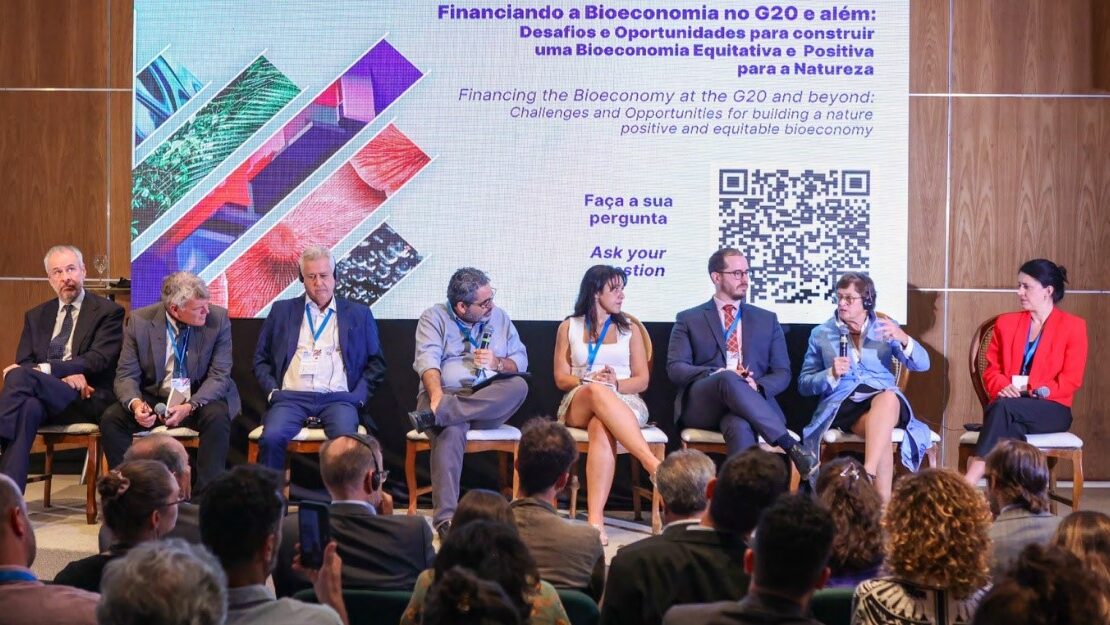A recently approved declaration establishing 10 principles for the development of the bioeconomy across the world was discussed at the meeting

On September 12, Fundo Vale took part in an event called “How to Finance a Positive Bioeconomy for Climate, Nature and People,” organized by the Institute for Climate and Society (iCS), The Nature Conservancy, NatureFinance, the Igarapé Institute, the Brazilian Climate, Forests and Agriculture Coalition, the Brazilian Business Council for Sustainable Development (CEBDS) and the Climate Policy Initiative. The meeting, held at Rio de Janeiro Botanical Garden, brought together representatives of organizations committed to leveraging sustainable development models in the Amazon.
The participants discussed a declaration recently approved by representatives of the G20, which established 10 principles for the development of the bioeconomy. This is a milestone initiative, as it was the first time that this subject was the subject of a multilaterally agreed document. The declaration, approved the day before the meeting, was the result of the Brazilian government’s G20 Bioeconomy Initiative. The consensus achieved on the “High-Level Principles on the Bioeconomy” marks a significant step in global recognition of the bioeconomy as a promising path for the ecological transition and for building a more sustainable and inclusive global economy.
“These principles recognize the importance of inclusion, equity and protecting the rights of traditional communities, values that are at the heart of our work in the Amazon. We believe that the bioeconomy, by integrating cutting-edge science with traditional knowledge, offers a promising way to tackle climate challenges and foster sustainable economic development,” said Camila Maia of Fundo Vale’s Amazon and Partnerships Area.
The event featured panel discussions and workshops that addressed topics such as the interaction between finance and sustainability in the global bioeconomy and strategies for expanding financing in different sectors, while seeking to make contributions to the G20 Bioeconomy Initiative. The opening panel highlighted progress in funding opportunities, using both traditional and innovative instruments, while the workshops explored ways to make the bioeconomy more inclusive, equitable and resilient. A study titled “Financing a Sustainable Global Bioeconomy” and the final report by the Task Force on Nature Markets, called “Putting Nature Markets to Work,” were also launched.
